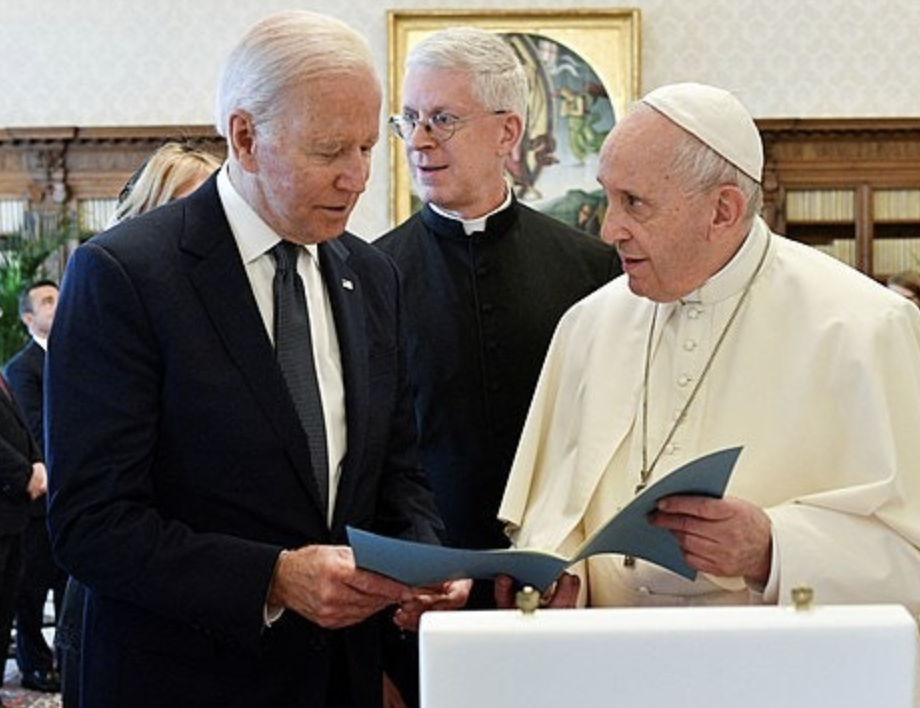With its lilting-pop melody and sweet God talk, "On Eagle’s Wings" is the hymn that conservative Catholics love to hate and Catholic progressives often wave like a red flag.
President Joe Biden loves it.
"My prayer, my hope is we continue to believe our best days are ahead of us -- that as a nation we continue to believe in honesty, decency, dignity and respect. We see each other not as enemies but as fellow human beings, each made in the image of God, each precious in his sight," said Biden, at the National Prayer Breakfast.
Before his latest nod to "On Eagle's Wings," the president stressed that Americans "believe everyone deserves a fair shot. We give hate no safe harbor. … In my church, we've taken the 22nd Psalm and turned it into a hymn. And it says, 'And he will raise you up on eagle's wings and bear you on the breath of dawn and make you to shine like the sun. Until we meet again, may God hold you in the palm of his hand.' …
"We have really tough, tough differences. … But remember -- let's remember who the hell we are. We're the United States of America. It's all about dignity and respect."
Actually, Father Jan Michael Joncas based this folk Mass-era hymn on Psalm 91, the Book of Exodus and the Gospel of St. Matthew. The White House transcript corrected many gaffes in the 81-year-old Biden's talk but missed that biblical detail.
Few would deny that "On Eagle's Wings" has become an American Catholic standard, especially during funerals. Biden quoted the hymn in his 2020 victory-night address and it was performed during the 2015 funeral Mass for his son Beau.
"The 'On Eagle's Wings' debate was never just about a hymn. It was about whether Catholics will rip each other apart during the Biden presidency," wrote Father Bill McCormick, in the Jesuit journal America.
Attitudes about this hymn underlined real differences, he stressed.










